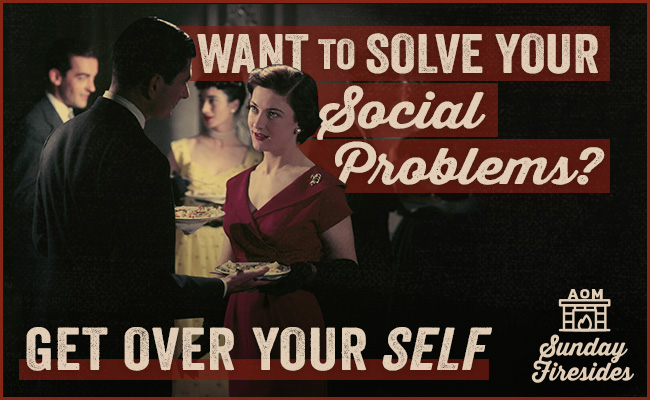
Shyness, social-interaction-sabotaging awkwardness, is commonly chalked up to a variety of causes. Genetics, personality, upbringing, a simple lack of confidence. But its real root is typically overlooked.
The shy are self-centered.
Now, that may seem harsh, but, it’s literally true.
When you’re suffering from shyness, you’re focused on yourself, on how you’re feeling. All you’re thinking about is: How am I doing? Did I say the wrong thing? Do they like me?
What you’re not thinking about, at all, is the other person. What you’re not thinking is: Are they having fun? Is he feeling good? Is she comfortable?
To be self-conscious, is to only be conscious . . . of the self.
More extroverted, socially-assured types are beset with a different, yet similarly sourced, problem.
They don’t feel anxious when interacting with others, but aren’t always successful in building relationships with them either, in part because they don’t remember things — stories, preferences, birthdays — even after being told multiple times.
“Sorry,†you’ll say, “I have a bad memory.â€
But you don’t have a bad memory. You’re self-absorbed.
Again, seemingly harsh, yet literally true. You don’t hear what the other person is saying, because you’re not truly listening to them. You’re thinking about what you want to say whenever they’re done speaking. You’re thinking about whatever is going on in your life. If what the other person shares doesn’t seem to directly relate to that, you don’t put in the effort to file it away.
Whether we’re being shy-and-self-centered or socially-assured-and-self-absorbed (and most of us can be both, depending on the circumstances) the solution to these issues and all issues of human interaction is the same.
Connecting with another requires temporarily directing a bit of the spotlight we like to exclusively shine inwards, onto another. And giving that attention to someone else, requires getting over your self.


